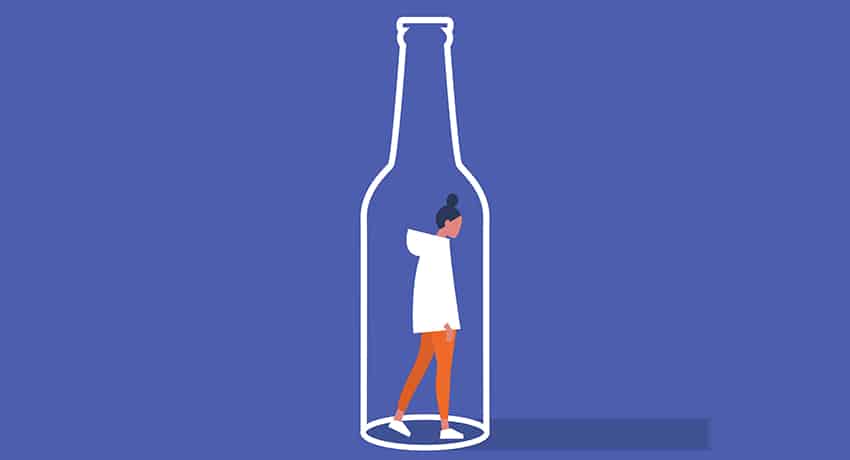Using alcohol to cope with increased stress and uncertainty during the pandemic is on the rise, but tools and resources are available for those who might need a little extra help finding better ways to manage their emotions.

“This is something that is definitely worth paying attention to, especially after the year we have all had with the months of lockdowns and restrictions related to the pandemic,” said Michael Weaver, MD, professor of psychiatry at McGovern Medical School at The University of Texas Health Science Center at Houston (UTHealth).
Weaver said that there are several reasons why a person might turn to alcohol. “Alcohol helps reduce anxiety, and this can be a coping mechanism. Some people don’t have good coping skills to begin with, so they turn to alcohol to make up for that. Other people don’t have good role models and drink instead of working on other ways to deal with worries and problems. Still others have a genetic predisposition such that the beneficial effects of alcohol are greater for them, so they are more likely to drink to cope,” he said.
Weaver said signs of a problem with alcohol dependence might start small, such as having more drinks than someone normally would in a single sitting. Those signs grow when someone might start avoiding socializing with family, friends, and co-workers in favor of drinking alone. Or they might arrive late to work after waking up with a hangover.
“A big warning sign, particularly during the pandemic, is when people start drinking more often to treat ‘uncomfortable feelings’ of depression, anxiety, or boredom,” Weaver said. Unfortunately, as a person keeps drinking, they require more and more alcohol to achieve the same level of stress reduction.
A drink is classified as one 12-ounce beer, one 5-ounce glass of wine, or a 1-ounce shot of hard liquor like vodka or tequila, according to the National Institute on Alcohol Abuse and Alcoholism (NIAAA). Guidelines from the NIAAA suggest that men under the age of 65 can enjoy two drinks per day or 14 per week, while men over the age of 65 should limit themselves to just one drink per day or seven per week. Regardless of age, women should indulge in only one drink per day or seven per week.
“Treatment for those struggling with alcohol is widely available and effective,” said Weaver, who added that the best first step is for someone to talk to someone trustworthy like a primary care physician, a counselor or therapist, or a member of the clergy.
A simple online quiz is available to fill out if you think you or a loved one might be developing alcohol dependence. It is anonymous and can assess whether your habits should be cause for concern.
If you or a loved one needs to seek treatment for alcohol dependence, the Substance Abuse and Mental Health Services Administration has a tool where you can input your ZIP code to find a list of treatment centers near you.
“Learning to deal with life on life’s terms without drinking is a challenging aspect of recovery from alcohol use disorder. Getting help to do so from a therapist, members of an Alcoholics Anonymous group, or a trusted role model can be very important. Resisting the urge to drink and working on alternative ways to cope are essential aspects of recovery,” Weaver said.
While those who have sought treatment for alcohol-related issues have been given tools and ways to graciously refuse a drink, Weaver thinks it is important to remember that it is never completely obvious that a person might have a problem with alcohol use now, or had a problem in the past.
“It is always good to be cognizant and never give someone the idea that a drink is the best way to deal with a difficult problem or emotion,” he said. “Instead of saying, ‘I need a drink,’ at the end of a long day or week, say something like, “I am going to go home and not think about work for the next 12 hours.”



